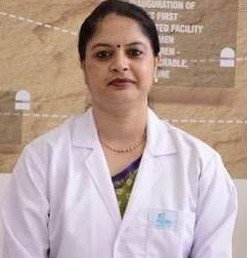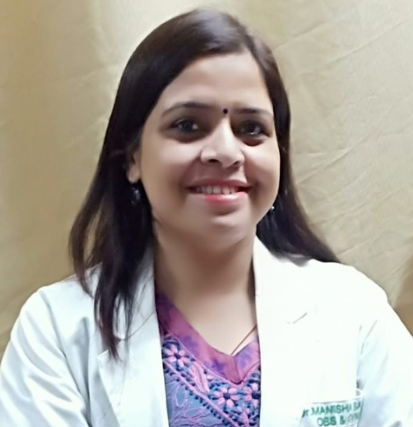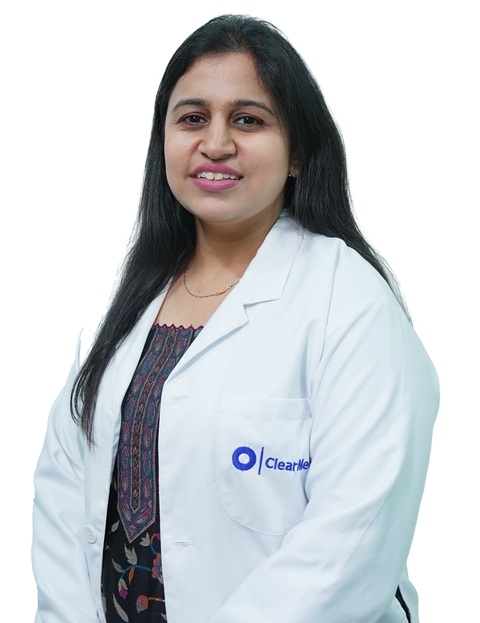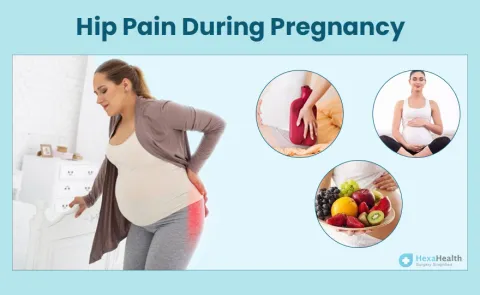What are the Chances of Getting Pregnant?

Quick Summary
- The chances of pregnancy vary depending on various factors, including age, overall health, lifestyle choices, and the timing of intercourse.
- One can get pregnant from precum as it can sometimes have small amounts of sperm.
- Generally, women under 35 with regular menstrual cycles have a greater chance of getting pregnant than those over 35 or with irregular cycles.
If a woman is trying to conceive or is doubtful about what are the chances of getting pregnant, understanding the factors that influence fertility is essential. While getting pregnant may seem straightforward, it’s a complex process that depends on several variables. The chances of pregnancy vary depending on various factors, including age, overall health, lifestyle choices, and the timing of intercourse.
Many women also think about what are the chances of getting pregnant from precum. It is essential to note that one can get pregnant from precum as it can sometimes have small amounts of sperm.
Generally, women under 35 with regular menstrual cycles have a greater chance of getting pregnant than those over 35 or with irregular cycles. However, some measures can be taken to improve the odds of conception.
Basics of Reproduction: How Pregnancy Happens
Reproduction is the process by which organisms produce offspring. In humans, reproduction occurs through sexual intercourse, where the sperm from a male partner fertilises an egg from a female partner, resulting in pregnancy.
- The female reproductive system comprises the ovaries, fallopian tubes, uterus, cervix, and vagina. Each month, the ovaries release one egg that moves through the fallopian tube towards the uterus.
During intercourse, sperm are ejaculated into the vagina and travel through the cervix and uterus to reach the egg in the fallopian tube. - If fertilisation occurs, the egg and sperm form a zygote, which develops into an embryo. The embryo moves through the fallopian tube towards the uterus and implants into the uterine lining, beginning pregnancy.
- Human pregnancy lasts about 40 weeks and is divided into three trimesters. During this time, the developing embryo and foetus receive nutrients and oxygen from the mother's blood via the placenta, a temporary organ that develops in the uterus.


Factors that Affect the Chances of Pregnancy
It is essential to consider the factors that affect the chances of pregnancy because understanding these factors can help women make informed decisions about their reproductive health.
By knowing what influences their ability to conceive, women can take proactive steps to optimise their fertility and increase their chances of getting pregnant.
Several factors can impact the chances of pregnancy. The following are the most critical factors:
- Age of the Woman: A woman’s age plays a significant role in her chances of conceiving. Women who are younger than 35 have a higher likelihood of getting pregnant than those over 35. As a woman ages, the number and quality of her eggs decrease, making it harder to conceive.
- Menstrual Cycle: Women with regular menstrual cycles have a better chances of conceiving than those with irregular cycles. Irregular periods can indicate hormonal imbalances that affect ovulation, making it harder to predict the best time to conceive.
- Overall Health: Women who maintain a healthy lifestyle, such as maintaining a healthy weight, exercising regularly, and eating a balanced diet, have a better chance of getting pregnant.
Specific health issues such as polycystic ovary syndrome (PCOS), diabetes, and thyroid disorders can also affect fertility. - Sexual Timing: Sexual timing is crucial in determining the chances of getting pregnant without protection. A woman is most fertile around ovulation when the egg is delivered from the ovary and travels down the fallopian tube.
If sexual intercourse occurs during this period, the chances of conception are high. On the other hand, having sex too early or too late in the menstrual cycle reduces the likelihood of pregnancy.
Tracking ovulation through basal body temperature monitoring, ovulation predictor kits, or monitoring cervical mucus can help women identify their fertile window and time of intercourse accordingly.
By understanding the importance of sexual timing in conceiving, women can increase their chances of pregnancy and shorten the time to conception. - Medical History: Certain medical conditions and procedures, such as pelvic inflammatory disease (PID), endometriosis, and chemotherapy, can affect fertility.
Women who have undergone a hysterectomy or have had their fallopian tubes removed may also experience fewer chances of conceiving.
Evident Signs to Track the Ovulation of a Woman
Tracking ovulation is an essential step for women who are trying to conceive. There are several signs that a woman can track to identify when she is ovulating. Some of the most common signs include the following:
- Changes in cervical mucus, which becomes more abundant, clear, and stretchy during ovulation, facilitate sperm movement.
- Increases basal body temperature, which rises slightly after ovulation and remains high until the next menstrual period.
- Mild pelvic pain or aching on one side of the lower abdomen caused by the release of the egg from the ovary.
- A positive result on an ovulation predictor kit test.
- Changes in libido, with some women reporting increased sexual desire around ovulation.
- Breast tenderness, bloating, or mood swings, can occur as a result of hormonal changes during ovulation.
- Keep track of the menstrual cycle and pay attention to any changes in length or regularity.
Methods For Boosting Chances of Conception
While getting pregnant is not always easy, it is possible to increase the chances of conception with the right measures. There are several ways by which a women can optimise her reproductive health and increase the chances of getting pregnant without protection. Some of these ways are as follows:
Lifestyle Changes
Leading a healthy lifestyle is one of the most crucial ways to increase the chances of conception. The lifestyle changes that one should undertake are.
Activities like yoga can be highly effective in keeping one’s hormones balanced, boosting the chances of getting pregnant.
- Healthy Weight: Maintaining a healthy weight is crucial for women trying to get pregnant because being overweight or underweight can affect fertility.
- Being overweight can cause hormonal imbalances that interfere with ovulation, while being underweight can disrupt the menstrual cycle and reduce the chances of conception.
- A balanced, rich diet and regular exercise can help women maintain a healthy weight and improve fertility. Additionally, women who are overweight or obese may be at increased risk of complications like high blood pressure and gestational diabetes.
Therefore, maintaining a healthy weight can increase the chances of getting pregnant and promote a healthy pregnancy and baby.
- Avoid Smoking and Alcohol: Smoking and alcohol consumption can reduce fertility and increase the risk of miscarriage and birth defects.
Therefore, it is essential to avoid smoking and limit alcohol intake while trying to conceive to increase the chances of a healthy pregnancy and baby. - Reduce Stress: Stress can interfere with ovulation and decrease the chances of getting pregnant. Stress-reducing activities such as yoga, meditation, or exercise can improve fertility.
- Exercise Regularly: Moderate exercise can help regulate hormones, improve circulation, and reduce stress, all of which can improve fertility.
- Get Enough Sleep: Lack of sleep can disrupt hormonal balance and reduce fertility, so it is important to get adequate sleep.
- Avoid Exposure to Toxins: Exposure to toxins such as pesticides and chemicals can negatively impact fertility, so it is important to minimize exposure whenever possible.
Supplements
Supplements can enhance women's chances of conception by providing vital nutrients that promote reproductive health.
- Essential supplements include folic acid, which reduces the risk of birth defects, and
- Iron and calcium are essential for a healthy pregnancy.
- Omega-3 fatty acids improve fertility by regulating hormones and ovulation.
- Herbal supplements such as chaste berry and maca can help regulate menstrual cycles and increase fertility.
However, consulting a healthcare professional before taking supplements is crucial, as some may have side effects or interact with medications.
Home Remedies
Several home remedies can help boost the chances of conception in women.
- One of the most effective remedies includes the consumption of garlic. It can significantly enhance egg quality in women and sperm quality in men, thereby increasing the chances of fertilisation.
- Being a rich source of iron and folate, consuming dates also boost the chances of getting pregnant.
- Foods like bananas, nuts, seeds, and leafy greens are rich in nutrients that can improve fertility.
- Herbs like chaste berry, red raspberry leaf, and maca root can help regulate hormones and improve fertility.
- Essential oils like lavender, geranium, and rose can help reduce stress and improve fertility.
- Fertility massage can help improve blood flow to the reproductive organs and regulate hormones.
Eating bigger breakfasts and reducing refined carbs can also help enhance fertility.
Infertility: When To Seek Help and What To Expect
If a woman has been trying to conceive for a year without success, she should seek medical assistance. A doctor can evaluate her fertility and recommend treatment options, such as fertility drugs, intrauterine insemination (IUI), or in vitro fertilisation (IVF).
What to expect?
- Diagnostic tests may include blood tests, imaging, and semen analysis.
- Treatment options often start with medications, surgery, assisted reproductive technologies, or donor eggs or sperm.
- Infertility treatment can be emotionally and financially challenging, and couples need to seek support and counselling throughout the process.
Takeaway
While you wonder what are the chances of getting pregnant, it is crucial to explore the different factors that tend to impact your chances. These may include your age, weight and the timing of your sexual intercourse.
Nevertheless, you can successfully increase your chances of conceiving by opting for the proper treatment and corrective measures like tracking your ovulation pattern and maintaining a healthy weight. Reducing stress and reducing your smoking habits can also prove to be effective in helping you get pregnant.
Sometimes, you may seek dedicated medical help from experts like us at Hexahealth. Our professional team of doctors and surgeons help examine your current reproductive health and suggest the most effective treatment for you to conceive easily. Contact our experts today and book your consultation to get started.
Frequently Asked Questions
What are the chances of getting pregnant?
What are the chances of getting pregnant from precum?
What are the chances of getting pregnant without protection?
What are the chances of getting pregnant with protection?
What are the chances of getting pregnant after age 40?
At what age is the maximum possibility of getting pregnant?
How to increase your chances of getting pregnant naturally?
What is the possibility of getting pregnant on the first try?
What are the four signs that a woman is ovulating?
References
All the articles on HexaHealth are supported by verified medically-recognized sources such as; peer-reviewed academic research papers, research institutions, and medical journals. Our medical reviewers also check references of the articles to prioritize accuracy and relevance. Refer to our detailed editorial policy for more information.
Last Updated on: 16 March 2023
Reviewer

Dr. Arti Sharma
MBBS, DNB Obstetrics and Gynaecology, Diploma In Cosmetic Gynaecology
9 Years Experience
Dr Arti Sharma is a well-known Obstetrician and Cosmetic Gynaecologist currently associated with Aesthetica Veda in Bengaluru. She has 9 years of experience in Obstetrics and Cosmetic Gynaecology and worked as an expert Obstetrician...View More
Author

Charu Shrivastava
BSc. Biotechnology I MDU and MSc in Medical Biochemistry (HIMSR, Jamia Hamdard)
3 Years Experience
Skilled in brand marketing and SEO-driven medical content that educates and engages patients, healthcare professionals, and the general public. With medical writing and proofreading expertise, she ensures accuracy,...View More
Expert Doctors (10)
NABH Accredited Hospitals (5)
Latest Health Articles



























 Open In App
Open In App